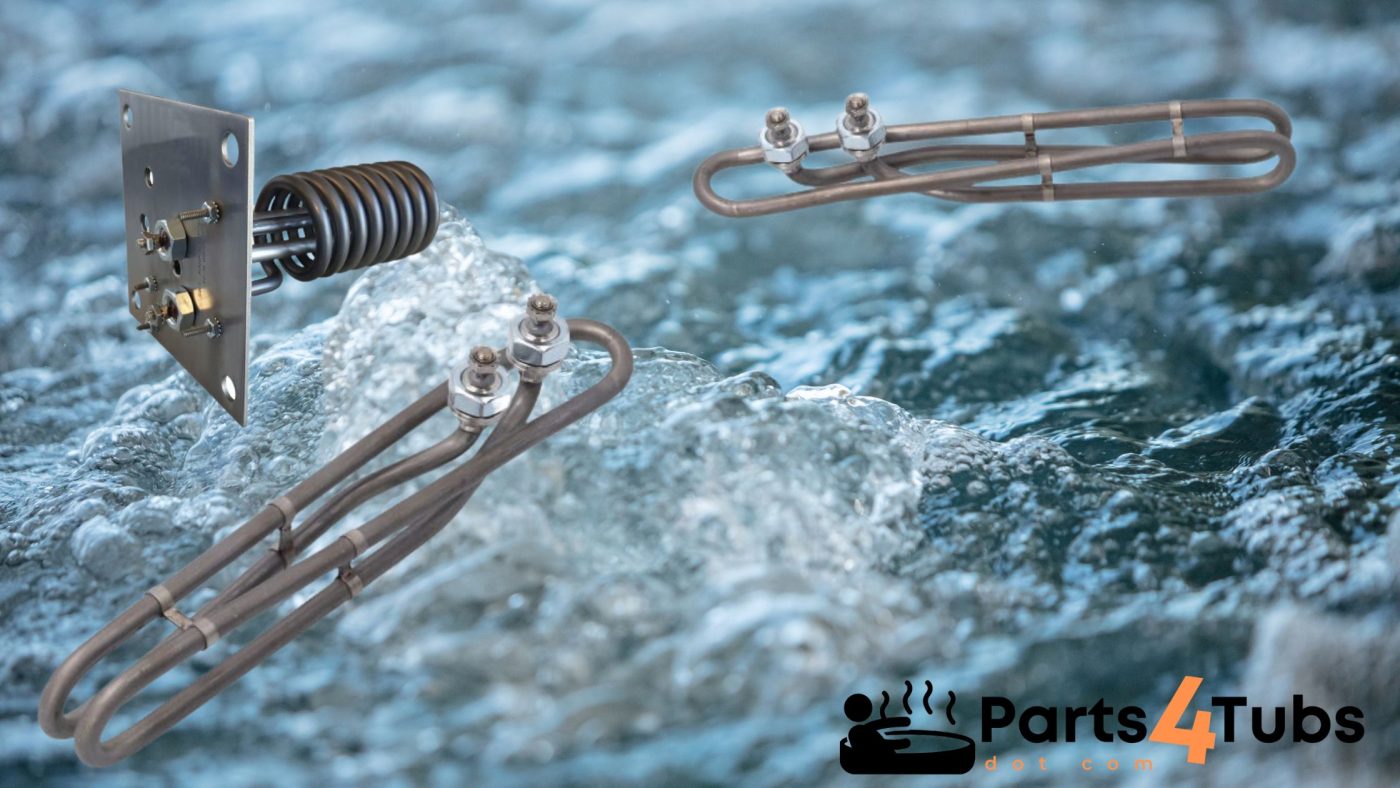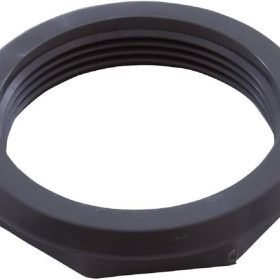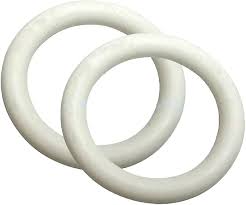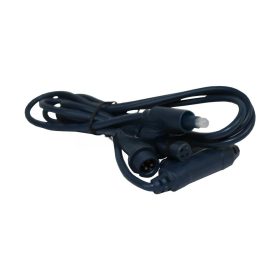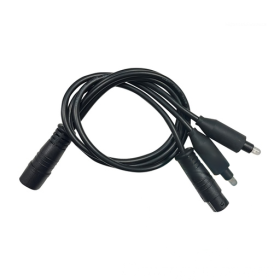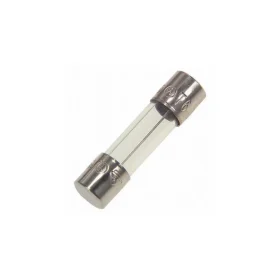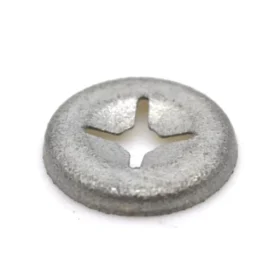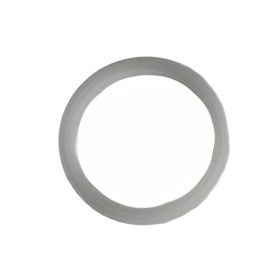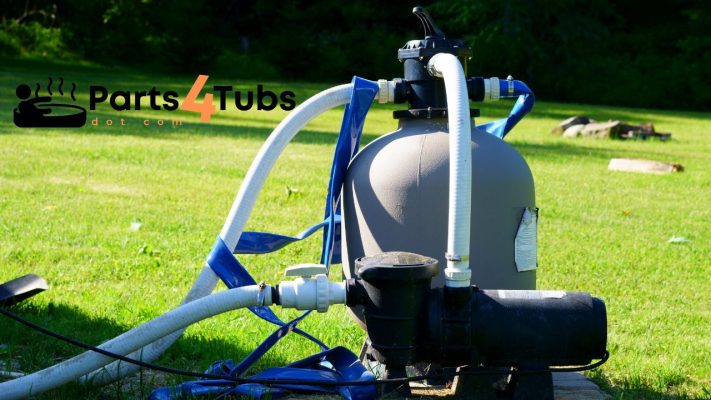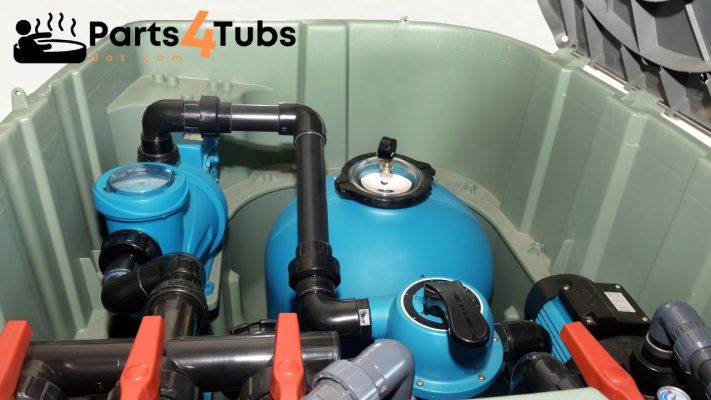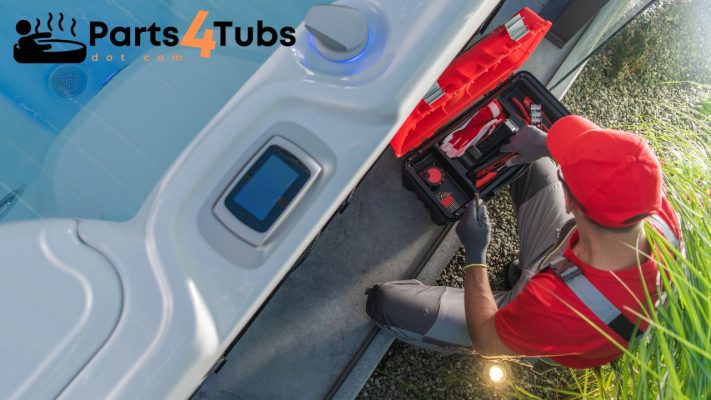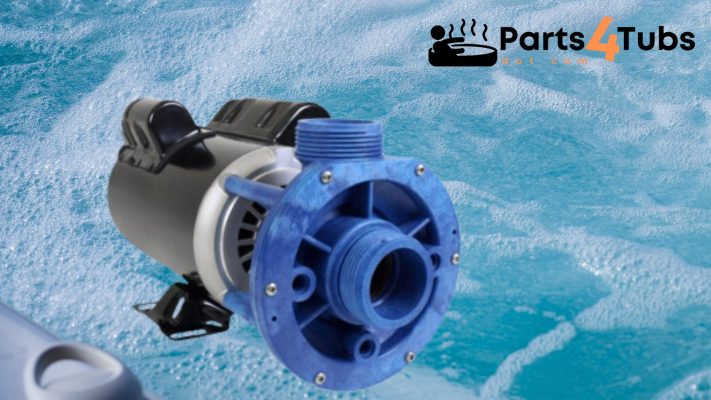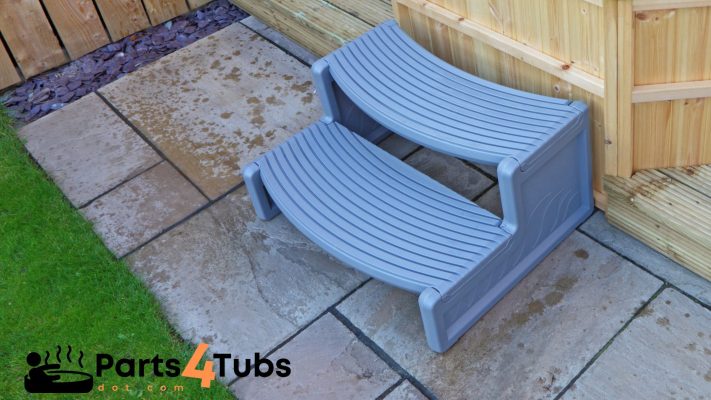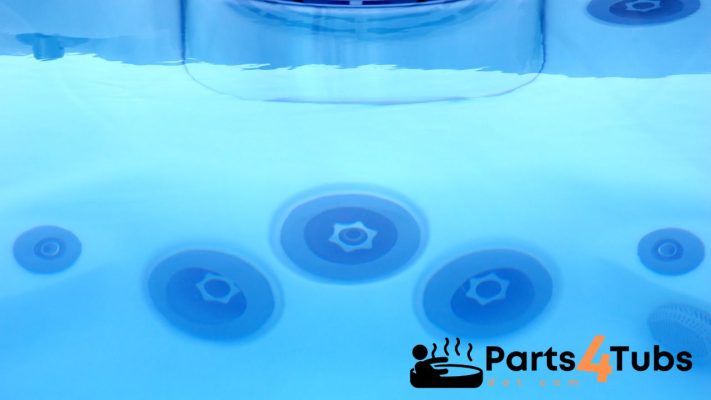Hot Tub Parts Related
Hot Tub Heating Elements – Everything you need to know!
As an experienced hot tub design consultant and the founder of parts4tubs.com, I understand the importance of hot tub heating elements in maintaining the optimal water temperature for a relaxing and enjoyable spa experience. Its quite simple – no heater no hot tub! In this blog post, I will delve into the world of hot tub heating elements and explore everything you need to know about them. I will cover various aspects, from the types of heating elements to factors to consider when choosing one, maintenance and care tips, and tips for replacements or repairs. Let’s get started!
Understanding Hot Tub Heating Elements:
To begin, let’s dive into the basics. A hot tub heating element is a vital component responsible for heating the water in your spa. It works by converting electrical energy into heat, raising the water temperature to your desired level.
There are different types of heating elements commonly used in hot tubs, including immersion heating elements, flow-through heating elements, and titanium heating elements. Each type has its own characteristics, advantages, and considerations, which we will explore in detail.
What is a Flow Through Heating Element?
A flow-through heating element is a type of heating element commonly used in hot tubs and spas. Unlike immersion heating elements that are directly immersed in the water, flow-through heating elements are designed to heat the water as it passes through the element. Here’s a closer look at the characteristics and functionality of flow-through heating elements:
Design and Operation:
Flow-through heating elements are typically constructed with a tube-like design. The water flows through the tube, and the heating element is wrapped around or inserted into the tube. As the water circulates through the tub, it passes through the heating element, where it gets heated before returning to the spa.
Advantages of Flow-Through Heating Elements:
- Efficiency: Flow-through heating elements are known for their high efficiency. The direct contact between the heating element and the flowing water allows for quick and effective heat transfer, resulting in faster heating times.
- Easy Replacement: Flow-through heating elements are often easier to replace compared to immersion heating elements. They can be accessed and replaced without the need to drain the entire hot tub, saving time and effort.
- Reduced Risk of Scale Build-up: Since flow-through heating elements do not directly come into contact with the water when the tub is not in use, they are less prone to mineral buildup and scale formation. This can contribute to their longevity and performance.
Considerations: While flow-through heating elements offer several advantages, there are a few considerations to keep in mind:
- Water Flow Rate: Flow-through heating elements rely on sufficient water flow to ensure effective heating. It is important to ensure that the water flow rate is within the manufacturer’s specified range for optimal performance.
- Compatibility: When replacing a flow-through heating element, it is essential to select a replacement element that is compatible with your hot tub model. Ensure that the voltage, wattage, and physical dimensions match the specifications of your existing heating element.
What is a Titanium Hot Tub Heating Element?
A titanium hot tub heating element is a specialized type of heating element used in hot tubs and spas. It is constructed using titanium as the primary material, offering several advantages over traditional heating elements. Here’s a closer look at the features and benefits of titanium heating elements:
Corrosion Resistance:
One of the standout characteristics of titanium heating elements is their exceptional corrosion resistance. Titanium is highly resistant to various corrosive elements commonly found in hot tub water, such as chlorine and bromine. This corrosion resistance helps to prolong the lifespan of the heating element, reducing the need for frequent replacements. This is also a good choice for a hot tub heating element if you are running a salt system for example as it can last a lot longer in what can be a hostile environment for metal components.
Durability and Longevity:
Titanium heating elements are known for their durability and longevity. They can withstand harsh water conditions, including high temperatures and chemical imbalances, without deteriorating or losing their performance. This makes them a reliable and long-lasting choice for hot tub heating systems.
Efficient Heat Transfer:
Titanium is an excellent conductor of heat, which means that titanium heating elements offer efficient heat transfer capabilities. They can quickly and effectively heat the water in your hot tub, providing a comfortable and consistent temperature for your spa experience.
Resistance to Scaling and Buildup:
Titanium heating elements have a low tendency to accumulate scale and mineral buildup. The smooth surface of titanium discourages the formation of deposits, reducing the need for frequent cleaning and maintenance. This allows the heating element to operate at its optimal efficiency for extended periods.
Factors to Consider When Choosing a Heating Element:
When it comes to selecting a heating element for your hot tub, several factors come into play. Wattage and power requirements are important considerations as they determine the heating capacity and energy consumption of the element. Material and durability are also crucial, as you’ll want a heating element made from high-quality, corrosion-resistant materials to ensure longevity. We will guide you through the key factors to consider to help you make an informed decision.
Maintenance and Care of Heating Elements:
Proper maintenance and care of your hot tub’s heating element are essential for its performance and longevity. Regular cleaning and inspection are vital to prevent mineral buildup and scale formation, which can hinder its efficiency.
How do I know if I have a bad hot tub heating element?
If you suspect that your hot tub heating element is not functioning properly, there are several signs that may indicate a faulty or bad heating element. Here are some common indicators to help you determine if your hot tub heating element needs to be replaced:
- No Heat or Insufficient Heating: If you notice that your hot tub water is not heating up as it should, or it’s taking an unusually long time to reach the desired temperature, it could be a sign of a malfunctioning heating element.
- Fluctuating Water Temperature: Inconsistent water temperature, where the hot tub water alternates between being too hot and too cold, may be a sign of a faulty heating element. It may be unable to maintain a steady temperature due to internal issues.
- Tripped Circuit Breaker: A frequently tripping circuit breaker could indicate an electrical issue related to the heating element. If the heating element draws excessive current or has a short circuit, it can trip the breaker and prevent the element from functioning correctly.
- Visible Damage or Corrosion: Inspect the heating element visually for any visible signs of damage or corrosion. Look for cracks, broken wires, or corrosion on the surface of the element. Such physical damage can affect its performance and require replacement.
- Higher Energy Consumption: If you notice a significant increase in your hot tub’s energy consumption without any other obvious explanation, it could be due to a faulty heating element. An inefficient element may require more energy to heat the water, resulting in higher utility bills.
- Water Leaks: While the heating element itself does not typically cause water leaks, a damaged element or its connections can lead to water seepage. If you notice any water pooling near the heating element or signs of moisture, it’s essential to investigate the issue further.
- Testing with a Multimeter: A multimeter can be used to measure the resistance of the heating element. If the resistance reading is significantly outside the manufacturer’s specified range or shows an open circuit, it indicates a faulty heating element.
If you experience any of these signs or suspect a problem with your hot tub’s heating element, you probably need to replace it.
How do you replace a Hot Tub Heating Element?
Replacing a hot tub heating element is quite a straight forward process and is definitely something that a competent DIYer can do themselves without having to call someone out to do it for them.
Every make and model is different so this is a generic process that might be slightly different to your own.
- Preparation: Before starting the replacement process, ensure that the power to your hot tub is completely turned off. This is crucial for your safety and to prevent any electrical accidents. Additionally, gather the necessary tools and equipment, including a wrench, screwdriver, and replacement heating element.
- Drain the Hot Tub: (this is optional, you can lock off the water on gate valves if you have them) To access the heating element, you need to drain the hot tub completely. Follow the manufacturer’s instructions or consult your hot tub’s manual for the proper procedure to drain the water. This may involve using a drain valve or a pump to remove the water.
- Locate the Heating Element: Identify the location of the heating element within the hot tub. It is typically positioned within the heater assembly, which is often located near the equipment compartment or control panel of the hot tub. Refer to your hot tub’s manual or send me some pictures if you’re unsure about the exact location.
- Disconnect the Electrical Connections: Carefully disconnect the electrical connections associated with the heating element. These connections may include wires connected to the element and any associated sensors or temperature probes. Take note of the wiring configuration or use a camera to capture a clear image for reference during reassembly.
- Remove the Old Heating Element: Using a wrench or screwdriver, loosen and remove any fasteners or clamps securing the heating element in place. Once the element is free, gently slide it out from the heater assembly. Be cautious of any remaining water or debris that may spill during the removal process.
- Install the New Heating Element: Take the replacement heating element and carefully insert it into the heater assembly, ensuring it is properly aligned. Secure it in place using the appropriate fasteners or clamps. Double-check that the element is securely positioned within the assembly.
- Reconnect the Electrical Connections: Reconnect the electrical connections to the new heating element. Refer to the reference image or the notes you made earlier to ensure the proper wiring configuration. Make sure the connections are tight and secure.
- Refill and Test: With the new heating element in place, refill the hot tub with water, following the manufacturer’s guidelines. Once the tub is filled, restore power to the hot tub and test the heating element. Monitor the water temperature to ensure that the new heating element is functioning correctly.
Conclusion:
Hot tub heating elements play a crucial role in maintaining the ideal water temperature for a luxurious spa experience. By understanding the different types of heating elements, considering key factors during the selection process, and following proper maintenance practices, you can ensure efficient performance and long-lasting functionality.
At parts4tubs.com, we are dedicated to providing high-quality hot tub parts, including reliable heating elements, to enhance your hot tub experience. Remember to prioritize the care and maintenance of your heating element to enjoy endless hours of relaxation in your hot tub oasis.
I hope this guide has shed light on the world of hot tub heating elements and provided valuable insights for your hot tub ownership journey. If you have any further questions or need assistance with hot tub parts, feel free to explore my website or reach if you have any questions.
Happy Hot Tubbin’
Andi
Can I Help You?
If I can help you in any way I would love to hear from you. You can get in touch using the form below.
Thanks - Andi

